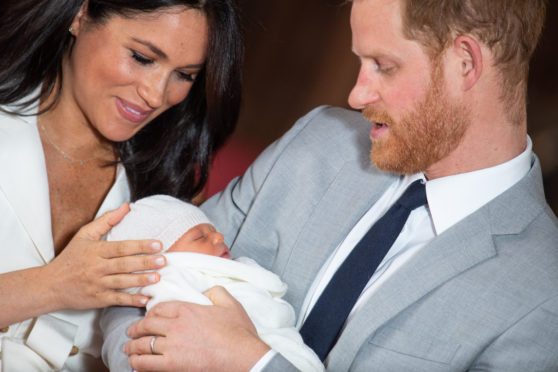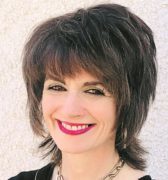If you were ever tempted to think that social class in Britain didn’t matter anymore, one mixed-race royal wedding (Quick! Smelling salts!), and the resulting royal baby, would quickly disabuse you of the notion.
We may, as a society, have embraced the new religion of atheism, but it seems we are far more determinedly clinging on to the divine right of Kings, with a forelock tugging, flag waving, gawd-bless-ya-yer-royal-highness reverence that is quite baffling.
The only cheer I can muster – more of a strangled cat meow really – is for Prince Harry. Harry’s public announcement about the birth of his son was at odds with the usual stuffy royal protocol. His easy, elated smile, his obvious sense of reverential wonder at the mystery of birth, his touching declaration that “this little thing is to die for” suggest that Harry “gets” it. If there is anything to note about the royal birth it is not its uniqueness, but its universality. No amount of glitter or gold, of pomp or circumstance, can disguise the fact that we all enter and leave the world in the same way.
There are seven billion of us in the world and 353,000 births globally every day. Despite great progress in reducing child mortality in the last 50 years, Unicef estimates that 5.4 million children under five died in 2017. As Harry is likely to know because of his affection for the area, roughly half of those deaths occurred in sub-Saharan Africa.
Pneumonia, malaria, diarrhoea…illnesses that are preventable and treatable here rob African parents of their own little things that are equally to die for. It is sad that the five million receive a fraction of the column inches of one royal arrival.
What is it about hierarchies that so enthrals us, that compels us to bend the knee and lose the head? Years ago, I interviewed the late Dowager Duchess of Devonshire, Deborah Mitford, then 90 years of age and the last of the six famous Mitford sisters. Deborah once had tea with Hitler and while one of her sisters became a fascist who left her husband for Oswald Mosely, another became a communist. The Duchess had downsized by then but was living in a substantial house near the Cavendish family seat of Chatsworth House. Chatsworth is a well-oiled business machine that now charges £24 per head to view the incredible splendour of the house and gardens.
I was led through the kitchen to see the Duchess, who I was instructed to call, “Your Grace”. (I didn’t.) It was like a scene from television’s Upstairs, Downstairs, the air warm and sweet, the big kitchen tables spread with cooling quiches and flans and cakes. The butler donned his jacket before taking me in to the Duchess’s presence, and the formality of it felt surreal and just a little obscene.
It was the juxtaposition of this façade with the reality of the Duchess’s life that remained with me. Deborah Mitford knew sorrow. She had not only been married to an alcoholic but had lost three babies. Yet it was striking how little she engaged with the emotion of her own life story, reaching instead for generic phrases like “it was very difficult”.
When I said gently that still births were handled so differently now, with mothers being encouraged to hold their dead infant, I was stunned by her response.
“I could never have done that,” she told me. The idea of holding a dead baby is abhorrent to me. I am disgusted by it actually…it must be so agonising for the woman to have this creature put in her arms. I can’t understand anyone wanting to do it but I know people do. It’s a change of attitude.” This creature? Her child?
I went to Chatsworth House where she had lived after interviewing her. It was an orgy of opulence: spectacularly ornate with rich gold fittings, white marble and polished wood; colourful Italian frescoes covering the ceilings; expansive windows through which the fine spray mist from garden fountains was visible in the distance. Around the walls were portraits of generations of the Cavendish family, looking – like Browning’s “My Last Duchess” – “as though they were alive”. But they weren’t. And it’s that impermanence that makes titles and hierarchies and royalty so absurd.
So, forgive me if I don’t bend the knee. As the Duchess noted, attitudes change. Harry’s strength this week has been not as a prince, but as a dad, overcome by an emotion than some of his relatives would shudder to express. But then, Harry’s appeal has never been his status but his frailty, his willingness, for example, to admit to mental health issues.
Here’s hoping his new son will inherit his ability to speak in a way that is just a bit more real than some of his fellow royals. For the truth of this life is the same for all of us. We come and we go, owning nothing but caretaking everything – whether we live above or below stairs.
Catherine Deveney is an award-winning investigative journalist, novelist and television presenter

